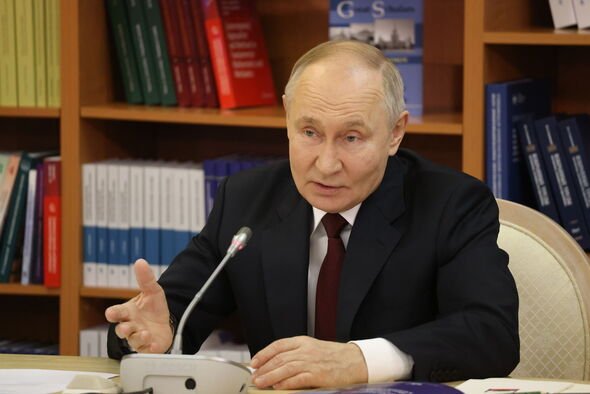Russia’s economy could “collapse completely” in 2025 as its vital oil supplies and exports are hit with sanctions and drone strikes, an expert has warned.
Ukraine is known to target Russian oil refineries in its attacks, crippling the already suffering war economy as Vladimir Putin spends billions on defence.
This, coupled with Western sanctions on oil exports, the country’s most important resource, has raised alarm bells over the future of the economy.
Former senior British military intelligence officer Philip Ingram said Russia‘s oil revenue is the “one thing” that’s keeping it in the fight against Ukraine.
He told Times Radio: “It’ll hit Russian agriculture, but more importantly it’ll hit the Russian economy in such a way that Russia will have very real difficulties in continuing its fight against Ukraine.
“We’re in for a very difficult year for Russia economically, and we could see the collapse of the Russian economy completely.”
Mr Ingram added that Ukrainian attacks on Russian oil refineries affects the whole oil supply chain, not just its storage.
He said: “[It] impacts Russia‘s ability through the whole chain of drilling, pumping, storing, refining, and exporting oil to a point where they’re going to rely more and more on as many exports as they can to empty their storage tanks to generate some capital.”
The expert also warned that this issue could be exacerbated by international sanctions on Putin’s Shadow Fleet used to circumvent existing restrictions.
Mr Ingram explained that “targeting” the fleet would land Russia in “real difficulty” in terms of its ability to utilise its oil.
This comes after Putin had to be warned of the country’s shocking levels of inflation.
During a meeting broadcast on state television, Prime Minister Mikhail Mishustin informed the president that Russia‘s gross domestic product soared to an unprecedented 200 trillion roubles (£1.6 trillion).
Putin expressed his approval of the economic performance, describing the results as “good” and “satisfactory”. However, he reiterated his desire to see inflation, which stood at a high of 9.5% in 2024, come down.
Soaring inflation has become a significant concern for both the Russian economy and consumers, who have witnessed rising prices for basic goods in supermarkets.
The central bank has kept its benchmark interest rate at 21%, the highest in two decades, as part of efforts to curb inflation.
